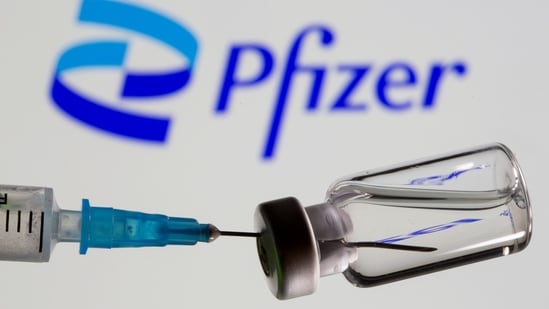Pfizer-BioNTech Covid-19 vaccine may require third dose, companies seek approval
The ongoing trial, conducted into the Pfizer-BioNTech Covid-19 vaccine, has shown that a third dose can push antibody levels five to 10 times higher against the said variants of the coronavirus compared to the first two doses alone.
The Pfizer-BioNTech Covid-19 vaccine, sold under the brand name 'Comirnaty', may require a third dose to work more effectively against the original strain of the coronavirus disease (Covid-19), news agencies reported on Friday morning, citing a statement from the companies from a day ago. The third Covid-19 shot is also expected to provide better protection against the Beta variant, first identified in South Africa, and the Delta variant, found in India, as per interim data from an ongoing trial into the vaccine.

Also Read: When will Moderna and Pfizer Covid vaccines reach India? Latest updates
Pfizer and BioNTech announced on Thursday that they would seek regulatory approval for the third dose of their Covid-19 vaccine, in view of the interim trial data which showed that a third dose can push antibody levels five to 10 times higher against the said variants of the coronavirus compared to the first two doses alone. This will, in effect, provide better protection than the current practice of administering two shots, the statement read.
The development comes after the vaccine was reported to be less effective against the Delta variant of the SARS-CoV-2 virus. A study, published in the journal 'Nature', showed that a single shot of the Pfizer-BioNTech vaccine, or even the AstraZeneca shot for that matter, "barely" induces any neutralising antibodies against the Delta Covid-19 strain.
The Pfizer-BioNTech Covid-19 vaccine was reportedly dropping in efficacy after six months, the Israeli government said earlier this week. According to Bloomberg, data from Israel’s health ministry showed the Pfizer Covid-19 vaccine protected 64% of the country’s people against the virus between June 6 and early July, down from the earlier 94%.
This decline has been observed amid the emergence and rise in cases of Delta variant in the country, the data revealed. Commenting on the matter, Pfizer-BioNTech said that the third dose may be needed within six to 12 months after full vaccination for complete protection.
Also Read | Moderna, Pfizer vaccines warn of heart inflammation risk
In light of these findings, Pfizer-BioNTech announced that the companies are working on a Delta-specific vaccine, the first batch of which has already been manufactured at BioNTech's facility in Mainz, Germany.
However, more studies are needed in this area and the companies anticipate the clinical trials to begin in August, subject to regulatory approvals.
"The companies expect to publish more definitive data soon as well as in a peer-reviewed journal and plan to submit the data to the FDA (Food and Drug Administration), EMA (European Medicines Agency) and other regulatory authorities in the coming weeks," the statement said.






